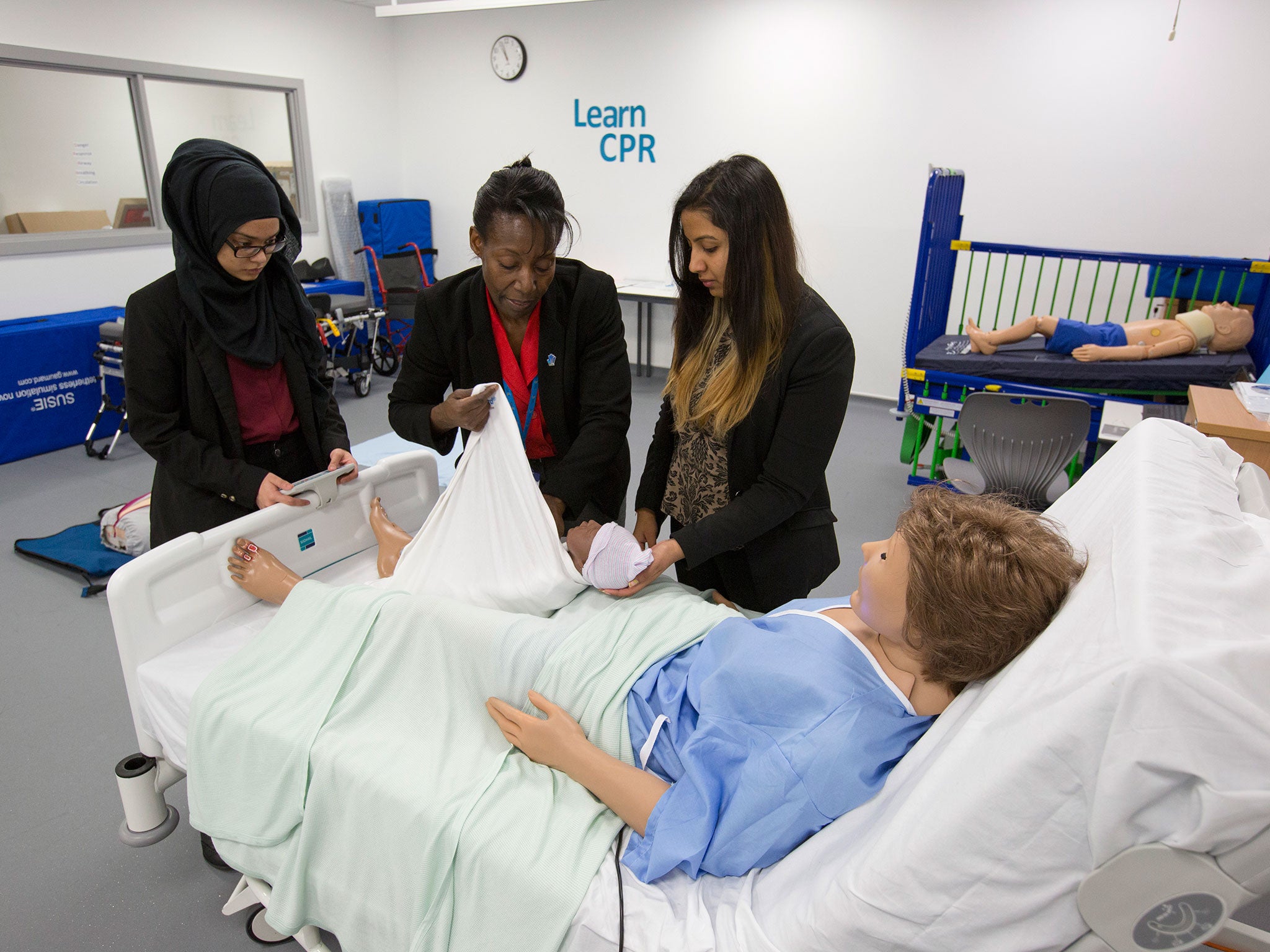University technical colleges are transforming pupils’ lives
The West Bromwich Health Futures University Technical College will give 14-year-olds chance to train for NHS career

A minister’s record is often judged by the achievements their government shouts loudest about, while quiet but brilliant ideas go unnoticed. So it has been with the creation of university technical colleges – schools which offer vocational training in a range of professions such as engineering, healthcare, construction and business, alongside traditional GCSEs, and link their pupils to both apprenticeships and employment opportunities.
The colleges, which take pupils from the age of 14 to 19, were the idea of the former Education Secretary Lord Baker. There are already 39 UTCs up and running, with another 20 in the pipeline.
We report on 5 February on the latest success: a college in West Bromwich where young students will – alongside their core subjects of English, maths and science – be trained in the particular skills that are in demand in the health service, including radiography and dental nursing. It’s a savvy move, considering that the NHS is now the fifth-largest employer globally. Figures show that employers are happy with former UTC pupils’ work: 99 per cent of those who left at the age of 16 last summer were in education, training or employment, along with 97 per cent of those who left at the age of 18 – far higher than the state sector average.
Critics warn that asking a child to specialise at the age of 14 is far too early in their development, and there may be some reasons for caution given that other Western nations such as the US do not allow specialisation in higher education, and employment is becoming more interdisciplinary. Nevertheless, a growing gap between the roles that exist in our economy and the skills that young people leave education with does exist; any attempt to reduce that must be welcomed.
Without the Baker Dearing Trust, the idea could have hit the buffers. As it is, these colleges are changing young people’s lives. And Lord Baker should be celebrated for that.
Join our commenting forum
Join thought-provoking conversations, follow other Independent readers and see their replies
Comments
Bookmark popover
Removed from bookmarks